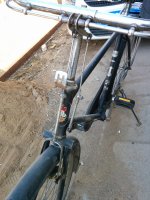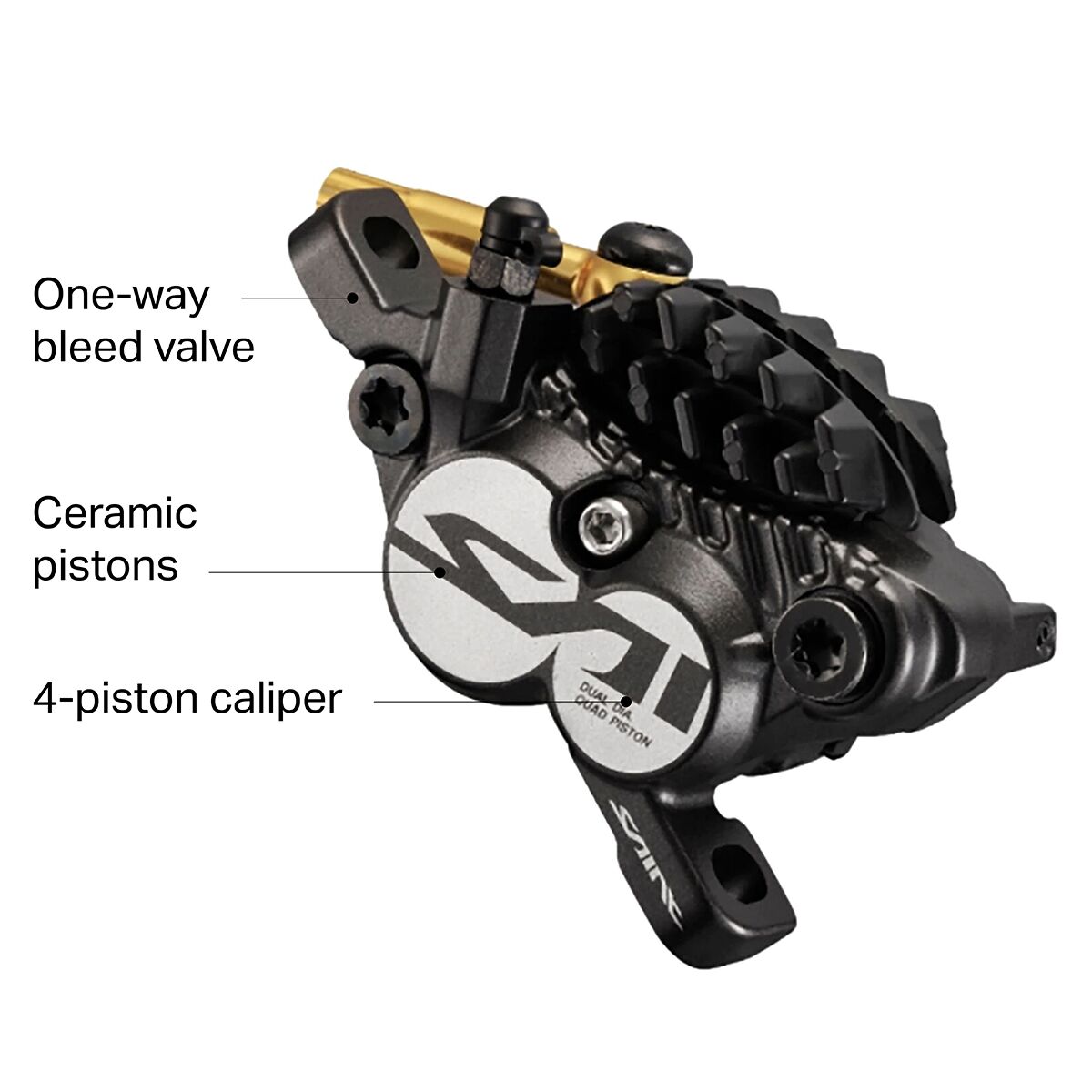I like the Avid BB7 cable-operated disc brake just fine.
The single BB7 with 200mm rotor on the front of SB Cruiser can easily lock up the wheel (max possible brake grip, though not best actual braking/control) if I just apply full single-finger pressure, at 20MPH with or without cargo, even with max cargo load of a few hundred pounds (which makes the total trike/rider/cargo mass almost half a ton, can do the same with even more weight if I'm hauling a trailer full of cargo too, but that changes the loading on the front wheel so it skids more easily than without the trailer).
I don't typically apply enough pressure on the lever to lockup the wheel because then there's no steering control, but it'll do it easily enough if I did. Using it normally without lockup heats the rotor quite a lot, far beyond "touchable" temperature (can't recall if I ever measured it, but it will cause instant burns...no I didn't *mean* to touch it :lol: )
No suspension front or rear, so all the weight transfer presses directly on the tire and then the ground instead of compressing springs first.
Takes a few months of ~25-30mile/week commutes to go thru the cheapo noname pads I found on amazon; maybe a year plus to go thru the original Avid pads (details somewhere in the SB Cruiser thread). Still on original rotor but there is noticeable wear.
At some point when I rebuild the rear frame for some other stuff around the wheels anyway, I'll add another Avid BB7 on each rear wheel, with a single dual-pull lever controlling them.

Used to use dual rim brakes for the same job; pads laster longer, rotor (rim) didn't heat up much, etc. Went with the disc because after I broke the fork in the pic below (in the only accident the trike has ever been in) the experimental replacement setup with a fatbike fork and a rear hubmotor wouldn't work with my existing rim brake setup and I didn't want to do all the mods needed to make it work. But been happy enough with the Avids to never need to change the system.






